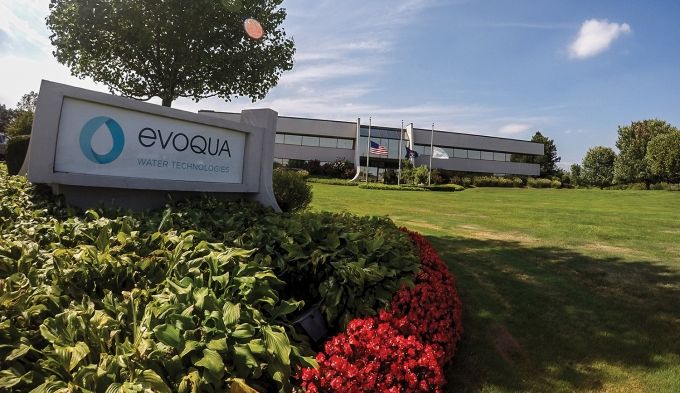Evoqua bets on sustainability, aging municipal infrastructure to drive business
Published on by Water Network Research, Official research team of The Water Network in Business
Executives at Evoqua Water Technologies LLC expect a combination of aging municipal infrastructure and an increased focus on sustainable business practices to drive interest in its water treatment technologies.
 Headquartered in Warrendale, Pa., Evoqua maintains one of its largest manufacturing facilities in Holland. The company manufactures a variety of water treatment equipment for numerous industries ranging from chemical manufacturing and heavy industrial applications to food processing.
Headquartered in Warrendale, Pa., Evoqua maintains one of its largest manufacturing facilities in Holland. The company manufactures a variety of water treatment equipment for numerous industries ranging from chemical manufacturing and heavy industrial applications to food processing.
Evoqua also makes screens that protect the water intakes at nuclear power plants.
“There is not an industry that does not use water in one shape or form,” said Mirka Wilderer, vice president and general manager of separations technologies at Evoqua. “They all use it and they often use it in their core process.”
Primarily, Evoqua sees several trends driving the market for water treatment technologies.
Businesses are increasingly adopting the technology to increase their on-site wastewater capacity and avoid excess fees from using already strained municipal systems.
“In some cases, it could even be a cost savings because otherwise, depending on where you are in the country, the fines for putting wastewater into the general system can be pretty big,” said Mike Stock, a spokesperson for Evoqua. “You have companies who didn’t have to do this before. Now they’re reaching out to companies like us to come onsite and treat their wastewater that they didn’t have to before.”
Customers also use water treatment technology to increase operational efficiencies as part of a larger emphasis on sustainability programs.
“What we see in the industry is an increased environmental consciousness in society overall,” Wilderer said. “I think that’s across a lot of continents. … Looking at the water footprint, it’s something that’s becoming more and more important for our customers so they’re looking for environmentally friendly processes.”
Moreover, municipalities also are investing in new water treatment technologies to repair aging infrastructure. A 2016 Water Industry Report published by Black & Veatch, a global engineering and consulting firm, noted aging infrastructure represents the largest challenge for municipal water treatment, wastewater and stormwater services going forward.
The report highlighted the Flint water crisis, where numerous people were exposed to dangerous levels of lead through the city’s drinking water, as an example of the growing focus on water treatment infrastructure.
“There is little doubt that the problems in Flint, Michigan, are fueling new debates over America’s water infrastructure,” according to the report.
GROWTH STRATEGY
Going forward, Evoqua plans to integrate new digital tools into its products to support its customers.
The company recently launched an online repository of operational manuals for its products.
Customers often misplace technical documentation for Evoqua’s equipment as many of the machines can be in operation for more than 30 years, Wilderer said.
The system gives login information to each customer and allows them to speak directly with a technician to walk through the repair or troubleshooting process if a machine breaks down.
In addition to integrating more digital tools into its process, Evoqua wants increase the efficiency of its equipment, allowing companies to conserve even more water. The manufacturer sells products to the oil and gas industry, which uses the equipment to reduce water consumption when producing frac sand for hydraulic fracturing operations.
“That’s not an extremely popular topic. … It takes an enormous amount of water to do that, but what our equipment is able to do is make that separation well enough so that we can take that water and reuse it, and reuse it and reuse it,” Stock said. “We’re just using the same water over again, which is great. We’d like to increase that ability all over our portfolio.”
Source: MiBiz
Media
Taxonomy
- Water
- Infrastructure
- Civil Engineering
- Investment Planning
- Infrastructure Management
- Finance and Markets